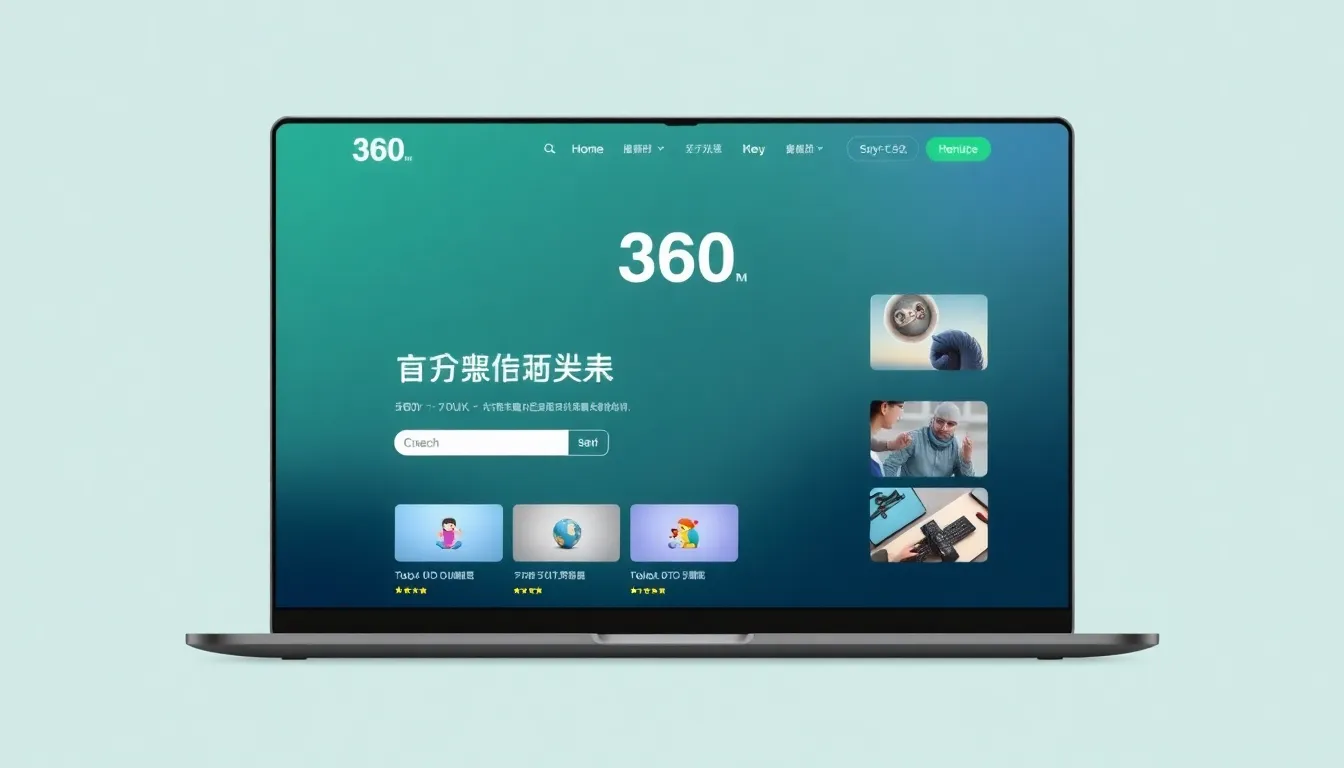

全面了解360杀毒官网及其服务功能
什么是360杀毒官网
360杀毒官网是由奇虎360科技有限公司推出的一款免费杀毒软件,旨在提供卓越的电脑安全防护能力。该软件通过先进的病毒查杀技术和实时保护功能,成为众多用户首选的安全工具。
360杀毒官网的主要功能
在360杀毒官网上,用户可以找到多种功能,这些功能帮助他们更好地保护计算机:
一、病毒查杀
360杀毒软件具备强大的病毒查杀能力,能够迅速检测并隔离潜在的恶意软件,确保用户设备的清洁和安全。
二、安全体检
通过安全体检功能,360杀毒官网可以帮助用户检查系统的安全状态,找到潜在的风险并提供解决方案。
三、实时保护
360杀毒还提供实时保护服务,能够时刻监控系统运行,快速阻断各类网络威胁和病毒入侵。
如何使用360杀毒官网
访问360杀毒官网后,用户可以轻松下载和安装软件。安装完成后,用户可以根据向导操作进行初次设置,并可以自定义各项安全参数。
360杀毒官网的优势
360杀毒官网不仅提供免费服务,同时界面友好,操作简单,适合各类用户使用。用户可以无忧享受全面的安全保护,且其定期更新的病毒库也确保了查杀能力的时效性。
用户评价
许多用户对360杀毒官网表示高度认可,认为其效率高、查杀能力强,且占用系统资源少。尤其是在处理疑似病毒时,360杀毒的智能判断能力得到了广泛的好评。
总结
总的来说,360杀毒官网是一个值得信赖的安全工具,为用户提供了全方位的保护服务。无论是普通家庭用户还是企业用户,都可以通过360杀毒官网享受到安全便捷的使用体验。
欲了解更多信息,请访问 360杀毒官网。

Essential Answers for the Level 5 Diploma in Leadership and Management for Residential Childcare
Understanding the Level 5 Diploma in Leadership and Management for Residential Childcare
The level 5 diploma in leadership and management for residential childcare answers represents a significant qualification aimed at enhancing the skills and knowledge of individuals who work in the challenging and rewarding field of residential childcare. As the landscape of childcare evolves, this diploma equips managers and leaders with the essential tools to effectively oversee residential settings and ensure the safety, well-being, and development of children and young people.
What is the Level 5 Diploma?
The Level 5 Diploma in Leadership and Management for Residential Childcare is a nationally recognized qualification that provides in-depth understanding and practical experience in managing care services. This diploma is designed for those working in residential childcare, including children’s homes, fostering agencies, and other care settings. The qualification covers key management practices, legal frameworks, and caring approaches necessary for leading teams and providing high-quality care.
Purpose and Importance of this Qualification
The primary purpose of the Level 5 Diploma is to prepare individuals for leadership roles within residential childcare settings. It emphasizes the necessity of cultivating effective management practices, improving children’s outcomes, and ensuring a safeguarding framework that protects vulnerable populations. Given the complexity of modern childcare environments, this qualification supports the professionalization of the sector, enabling workers to advocate for best practices and drive improvements in service delivery.
Who Should Pursue This Diploma?
This diploma is ideal for aspiring and current managers, team leaders, and senior practitioners in residential childcare settings. It caters to professionals looking to develop their careers in management within the sector, as well as those aiming to refine their leadership skills and enhance their service quality. The diploma is suitable for various roles in childcare, such as residential care managers, social workers, and case managers, who are responsible for overseeing the welfare and protection of children and young people.
Core Units and Learning Outcomes
The Level 5 Diploma consists of various core units that encapsulate the relevant knowledge and skills required in leadership and management roles. Each unit has specific learning outcomes that students must achieve to demonstrate their competence and understanding of the material covered.
Key Units Overview
The units within the diploma typically cover essential topics such as:
- Leading and Managing a Team: This unit focuses on skills in team leadership, including effective communication strategies and conflict resolution.
- Safe Practice in Residential Childcare: Candidates will learn about safeguarding policies and legislation to protect children and young people.
- Working in Partnership: Emphasizing the importance of collaboration with families, social services, and other stakeholders to enhance children’s outcomes.
- Developing Practice: Identifying areas for improvement in care practices and implementing changes to benefit the children served.
Skills Development and Application
Students will engage with various methodologies designed to develop practical leadership skills. Through case studies, role-playing scenarios, and action learning, candidates can sharpen their ability to handle real-world challenges. This experiential learning fosters critical thinking and enhances the capability to make informed decisions in high-pressure environments.
Assessment Methods and Expectations
Assessments for the Level 5 Diploma include a combination of coursework, practical evaluations, and reflective practice journals. Students are expected to complete assignments that demonstrate their understanding of the units studied, applying theoretical knowledge to practical scenarios. Additionally, learners are advised to engage in regular self-assessment and peer feedback sessions to optimize their professional growth.
Strategies for Success in Completing the Diploma
Successfully completing the Level 5 Diploma requires planning, dedication, and effective strategies to stay on track. Here are some recommended approaches:
Effective Study Techniques
Utilizing various study techniques can enhance learning outcomes. Techniques may include:
- Active Learning: Involve yourself in discussions, simulations, and practical exercises to reinforce understanding.
- Mind Mapping: Create visual representations of key concepts to organize information and improve recall.
- Consistent Review: Regularly revisiting content can strengthen memory retention and understanding.
Professional Support Networks
Building a network of support is crucial for success. Engaging with fellow candidates, accessing mentors, and participating in professional groups can provide valuable insights and emotional support. Establishing connections within the childcare community can also lead to essential resources and advice on navigating challenges.
Time Management Tips for Busy Learners
Balancing studies with work and personal commitments can be challenging. Here are a few tips to manage time effectively:
- Schedule Study Sessions: Block out dedicated study time in your calendar to create structure.
- Set Clear Goals: Define both short-term and long-term objectives for your diploma work to maintain focus and motivation.
- Prioritize Tasks: Utilize a task list to identify which assignments require immediate attention versus those that can be completed later.
Challenges Faced by Students
Common Obstacles When Pursuing the Diploma
Some of the typical challenges faced by students include:
- Balancing Responsibilities: Many students juggle work, family, and study commitments, making it difficult to allocate sufficient time for their coursework.
- Academic Pressure: The rigorous demands of the diploma can sometimes lead to anxiety, particularly when facing assessments.
- Access to Resources: Limited access to educational materials or support may hinder learning opportunities.
Strategies to Overcome These Challenges
To navigate these challenges effectively, students can implement several strategies:
- Utilize Time Management Tools: Invest in digital tools or applications designed to track tasks and deadlines.
- Seek Guidance: Reach out to tutors, mentors, or colleagues for support when feeling overwhelmed. Engaging with peers can also provide collaborative learning opportunities.
- Focus on Mental Health: Prioritize self-care practices, including regular breaks, exercise, and mindfulness activities to alleviate stress.
Real-life Testimonials from Past Students
Incorporating testimonials from former students can offer valuable insights into overcoming challenges:
“I found balancing my job and studies to be quite challenging initially. By using a planner and studying with friends, I managed to stay motivated and on track. The support I received from tutors also made a significant difference.”
— Emily, Level 5 Diploma Graduate
Future Prospects and Career Opportunities
Completing the Level 5 Diploma in Leadership and Management for Residential Childcare opens numerous doors for career progression, with opportunities to pursue various roles in the childcare sector.
Employment Opportunities after Graduation
Graduates can take on various positions such as:
- Residential Care Manager: Oversee the operations of children’s homes, ensuring compliance with regulations and delivering quality care.
- Team Leader: Manage a team of childcare workers, providing support, training, and guidance to ensure effective practice.
- Quality Assurance Officer: Evaluate the quality of services provided and implement strategies to enhance care practices.
Continuing Education and Advancement
The Level 5 Diploma can be a stepping stone to further educational opportunities, including:
- Earning a Level 6 Diploma in Advanced Practice.
- Obtaining a foundation degree or a bachelor’s degree in social work or related fields.
- Participating in specialized leadership training programs.
The Role of This Diploma in Career Growth
This diploma not only provides essential skills but also enhances employability. Employers often prioritize candidates with formal qualifications, and this specific diploma demonstrates a commitment to professional development and standards in childcare.










